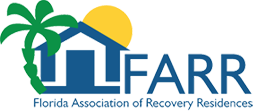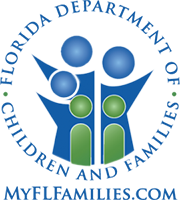The Impact of Opioid Addiction on Families and Where They Turn for Support
With the rise in opioid addiction, the devastation it can cause families is now more apparent than ever. Witnessing a loved one struggle with opioid addiction can feel terrifying, frustrating, and heartbreaking. Strained relationships, loss of trust, or lack of understanding of addiction can all contribute to an even further rift between loved ones. The stress that comes along with watching a family member dive deeper into addiction may feel you lost and alone, so knowing where to find family support for opioid addiction should be a priority.
Addiction as a “Family Disease”
While it has often been a topic of great debate, the American Medical Association has identified addiction as a disease for decades, due to the way it changes the way the brain operates. The American Society of Addiction Medicine classifies it as, “a primary, chronic disease of the brain, reward, motivation, memory, and related circuitry.” Chronic being the key word here, in that similar to how other chronic diseases like hypertension; addiction often has periods of remission and relapse.
Another similarity in chronic conditions and addiction is the role genetics have in determining how likely it is that a person will develop substance use disorder (SUD). The child of someone with substance use disorder is six times more likely to struggle with addiction than the child of someone without SUD. Because of this, families can get caught up in a cycle of addiction spanning generations.
How Opioid Addiction Impacts Families
Opioid Addiction changes how neurotransmitters in the brain react to signals they receive, causing a loved one to behave in ways that may be out of character for them. Families may be the victim of theft by their loved one or perhaps they have been displaying rapidly changing mood swings, but one thing for sure is that living with someone who is battling addiction can be chaotic. Damaged relationships can be heartbreaking to endure and often results in enabling the addict. Addiction can change the manner in which parenting is done and parents may blame themselves or their partner. Typically, family members of the addict fit into one of three roles:
- Blamer—Transfers blame to others and struggles to accept responsibility for their actions
- Protector—This is the traditional “enabler” role. While their intentions are well meaning, they are easily manipulated because they are essentially blinded by the love they have for the addict.
- Persecutor—This person believes tough love will solve everything. They may be angry, avoidant, distant, or enforce strict punishment in hopes of helping the addict learn.
Where Families of Opioid Addicts Can Find Support
Just as the addict is not alone in their struggles or recovery, families of addicts have a wealth of resources available for support too. Don’t let the stigma associated with addiction or the opinions of others’ hold you back from the support you need during this incredibly difficult time. Al-anon is a wonderful place to meet and confide in families of addicts and can provide a great sense of community and allow for self-reflection, and ultimately healing to occur. They offer meetings similar to AA or NA, but are tailored for families.
The Source Treatment Center in Ft. Lauderdale provides world class care for their patients and their emphasis on family inclusion is what sets them above the rest. Family therapy is a critical component of treatment for those who wish to reconnect with their family and families are encouraged to actively participate in their loved ones’ treatment. Families wishing to learn more about programs offered at The Source or for more information on resources available, please call (800) 204-0418 or visit us online at www.thesourcetreatmentcenter.com.


 The Source quite frankly saved my life and got me back on track, never giving giving up on me. When you are thinking about and looking through all of the different places to go for treatment this is the one that should stand out from the rest.
The Source quite frankly saved my life and got me back on track, never giving giving up on me. When you are thinking about and looking through all of the different places to go for treatment this is the one that should stand out from the rest.




























